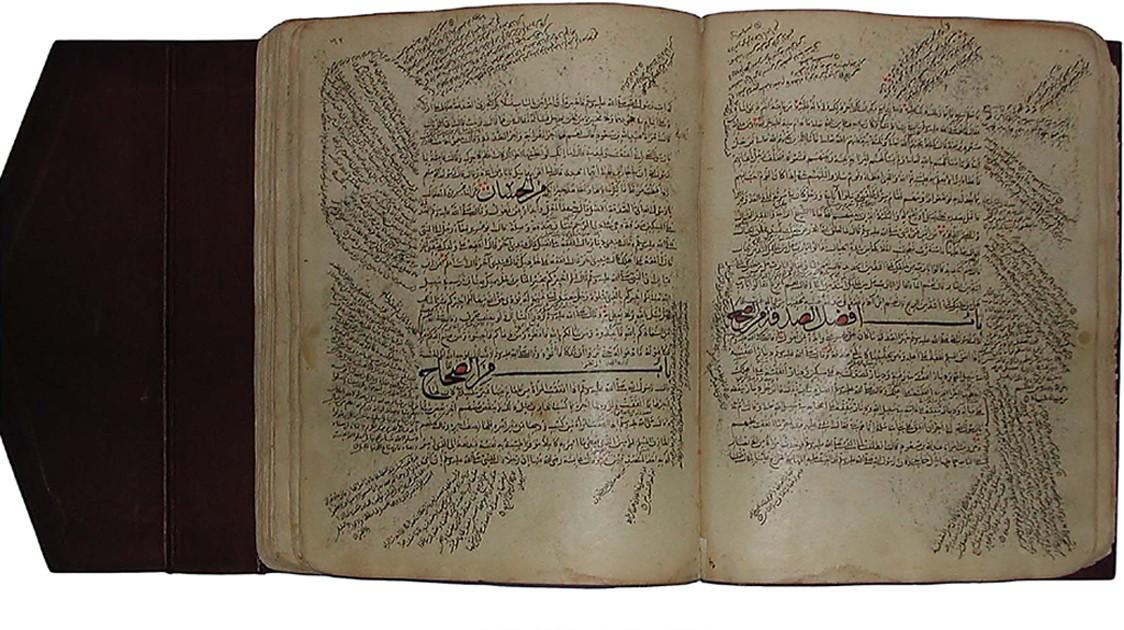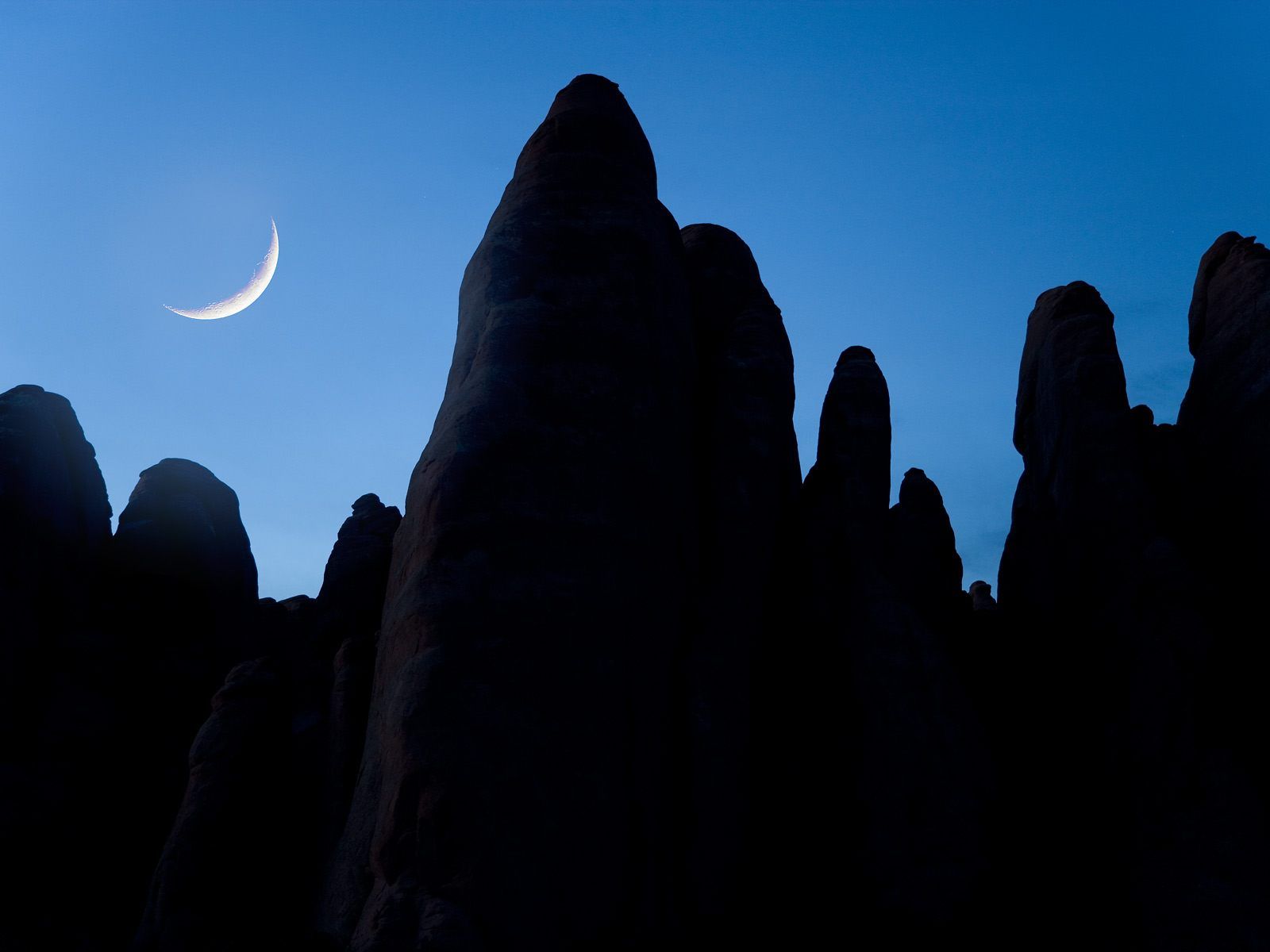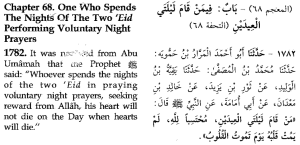Category Archives: The Holy Prophet
Forty Ahadith on “Whosoever…â€
Excerpted from
Al-Jami` al-Saghir min Hadith al-Bashir al-Nadhir
Compiled by: Imam Jalal al-Din al-Suyuti (`alayhi ‘r-Rahmah)
Translated by: Muhammad Husayn al-Qadiri
- Whosoever harms a believer has harmed me, and whosoever harms me has harmed Allah. [Al-Tabarani in Al-Awsat]
- Whosoever fears Allah, Allah will make everything fear him, and whosoever does not fear Allah, He will make him fear everything. [Al-Hakim]
- Whosoever loves for the sake of Allah, hates for the sake of Allah, gives for the sake of Allah and withholds for the sake of Allah then his faith has been completed.
- Whosoever loves a group of people, Allah shall resurrect him with them. [Al-Tabarani in al-Kabir]
- Whosoever loves al-Hasan and al-Husayn has indeed loved me, and whosoever hates them indeed hates me. [Ahmad in al-Musnad]
- Whosoever performs hijamah (cupping) on the 17th, 19th or 21st of the (lunar) month then it is a cure for every disease.
- Whosoever ties the Ihram of hajj or Umrah from al-Masjid al-Aqsa then he will be just like the day his mother gave birth to him. [Abd al-Razzaq in his Musannaf]
- Whosoever looks after an orphan shall be with me in Jannah, just like this (joining his forefinger and middle finger together). [Al-Tirmidhi]
- Whosoever revives these four nights then Jannah is binding upon him; the night of al-Tarwiya (8th of Dhu al-Hijjah), the night of al-`Arafah (9th of Dhu al-Hijjah), the night of al-Nahr (10th of Dhu al-Hijjah) and the night of al-Fitr (1st of Shawwal). [Kanz al-`Ummal]
- Whosoever brings infertile land to life, for him is a reward therein, and if a creature eats from it, that shall be charity for him. [Ahmad in al-Musnad]
- Whosoever revives my Sunnah has loved me, and whosoever loves me will be with me in Jannah. [Al-Tirmidhi]
- Whosoever frightens a believer then it is a right of Allah that He shall not save him from the frights of the Day of Resurrection. [Al-Tabarani in al-Awsat]
- Whosoever takes another’s piece of land unjustly, he will be made to sink down the seven earths on the day of resurrection. [Al-Bukhari]
- Whosoever does not perform khilaal (pass wet fingers in between the fingers and toes in wudu and ghusl) using water, Allah shall pass fire through them on the Day of Resurrection. [Al-Tabarani in al-Kabir]
- Whosoever has love for his (Muslim) brother in his heart and does not reveal it to him then he has betrayed him. [Kanz al-`Ummal]
- Whosoever takes intoxicants then Allah shall not accept forty days of his prayers. [Al-Tirmidhi]
- Whosoever builds a Masjid seeking by it the pleasure of Allah, Allah will build for him likewise in Jannah. [Al-Bukhari]
- Whosoever removes harm from the Masjid, Allah shall build for him a house in Jannah.
- Whosoever removes a harmful thing from the path of a Muslim, then Allah shall write for him a reward, and for whom He writes a reward, he will be entered into Jannah. [Al-Tabarani in al-Awsat]
- Whosoever makes an error or commits a sin, thereafter feels remorseful, then that (remorse) shall compensate for it. [Al-Bayhaqi in Shu`ab al-Iman]
- Whosoever dedicates forty days for the sake of Allah, the wellsprings of wisdom shall appear from his heart to his tongue. [Abu Nu`aym in al-Hilya]
- Whosoever calls the Adhan for seven years seeking reward; Allah shall write for him freedom from Hell. [Al-Tirmidhi]
- Whosoever calls the Adhan for one year not seeking any (worldly) reward, shall be summoned on the Day of Resurrection. He will stand on the Door of Jannah and it will be said to him, ‘Intercede for whom you wish’. [Ibn `Asakir]
- Whosoever commits a sin knowing he has a Lord who if He wishes can forgive or punish him then it is a right upon Allah to forgive him. [Al-Hakim in al-Mustadrak]
- Whosoever displays to people fear (of Allah), greater than he really has, then he is a hypocrite. [Kanz al-`Ummal]
- Whosoever pleases his (Muslim) parents has pleased Allah, and whosoever angers his parents has angered Allah. [Kanz al-`Ummal]
- Whosoever increased his knowledge (of religion) and did not increase his detachment from the world has not but distanced himself from Allah. [Al-Daylami in Musnad al-Firdaws]
- Whosoever performs ablution in extreme cold conditions will obtain double the rewards. [Al-Khatib in al-Tarikh]
- Whosoever can, should die in Madinah, because I shall intercede for the one who dies in Madinah. [Ahmad in al-Musnad]
- Whosoever can benefit [by incantation (al-ruqya)] his brother should do so.
- Whosoever can protect one’s religion and one’s honour using his wealth should do so. [Al-Hakim in al-Mustadrak]
- Whosoever amongst you can cover his believing brother using the edge of his cloak should do so. [Al-Daylami in Musnad al-Firdaws]
- Whosoever makes haste shall err. [Al-Tirmidhi]Whosoever seeks forgiveness of Allah after each prayer by praying three times:أَسْتَغَÙÙر٠اللَّهَ العَظÙيْمَ الَّذÙيْ لَا Ø¥Ùلٰهَ إلَا Ù‡ÙÙˆÙŽ الØَيّ٠القَيّÙوْم٠وأَتوْب٠إÙلَيْه٠Astaghfirullah al-`Azheem al-Ladhi La Ilaha Illa Huwa al-hayyu al-Qayyumu wa Atoobu Ilayhi his sins will be forgiven, even though he tried to run away from the army. [Ibn al-Sunni in `Amal al-Yawm wa al-Laylah]
- Whosoever seeks forgiveness on behalf of believing men and women, Allah shall write for him a good deed (equal to) each believing man and woman. [Al-Tabarani in al-Kabir]
- Whosoever seeks forgiveness twenty seven times in a day for the believing men and women then he will become from those who are answered and by whom the dwellers of earth are given sustenance. [Al-Tabarani in al-Kabir]
- Whosoever begins his day with goodness and ends it with goodness then Allah says to the Angels, ‘Do not write the (minor) sins between the two’. [Kanz al-`Ummal]
- Whosoever listens to music will not be allowed to hear the sound of al-Ruhaniyyin. It was asked, ‘Who are al-Ruhaniyyin?’ He (SallAllahu `Alayhi wa Sallam) said, ‘The reciters from the people of Paradise’. [Al-Tirmidhi]
- Whosoever completes the recitation of the Quran in the morning, the angels pray for him till the evening. And whosoever completes the recitation of the Quran in the evening, the angles pray for him till the morning. [Abu Nu`aym in al-Hilya]
- Whosoever carries for my people forty ahadith, Allah will resurrect him on the Day of Judgement as a Jurist and a Scholar. [Ibn `Adi in al-Kamil]
© 2012 As-Sunnah Foundation of America
Big Nights and Days of Islam: Eid
It was narrated from Hazrat Abu Umaamah radi Allaahu ‘anhu: “Whoever spends the nights of the two ‘Eids in praying voluntary night prayers, seeking reward from Allah, his heart will not die on the Day when hearts will die.†[Ibn Majah, Hadeeth #1782]
Hazrat Aysha radi Allaahu ‘anhaa related: “God the Exalted showers goodness (khayr) in abundance during four nights; the Nights of Aá¸á¸¥Ä and Fiá¹r (i.e. the night of the two ʿĪds), the Night of Mid-ShaÊ¿bÄn in which deaths and provisions are determined as are the pilgrimages written, and the evening of Ê¿Arafa until the call to prayer.†[Kanz ul-Ê¿Ummaal, Vol #12, Hadeeth #35215][1]
It is related from Hazrat Mu’aadh ibn Jabal radi Allaahu ‘anhu that whoever observes the night vigil during the following five nights has heaven made obligatory on him: the 8th, 9th and 10th nights of Dhul Hijjah, fourth is the night of Eid-ul-Fitr and fifth is the 15th night of Sha’baan. [At-Targheeb wat-Tarheeb, Vol #2, Hadeeth #2]
Hazrat Abdullah ibn Abbas radi Allaahu ‘anhumaa relates: When the blessed night of Eid-ul-Fitr arrives, it is called “Laylatul Jaaizah†which means “the night of reward.†When the morning of Eid comes in, Allah sends His innocent angels to all the cities. As a result these angels come to the earth and stand at the head of every street and call out: “Oh Ummah of Prophet Muhammad sal Allahu alayhi wa sallam! Come to the Court of that Divine Lord who bestows copiously and forgives the greatest of sins!â€
Then Allah addresses His creatures as follows: “O My servants! Ask! What would you like to ask? By My Honor and Majesty! Today at this gathering (of the Eid prayer) whatever you will ask Me related to your Hereafter I Will Fulfill it. And whatever you ask related to your dunya, I Will do whatever is best for you. By My Honor! As long as you pay heed to Me, I will also cover your faults. By My Honor and Majesty! I will not disappoint you with the transgressors. Now return to your homes forgiven! You have pleased Me and I am also pleased with you!†[At-Targheeb wat Tarheeb, Vol #2, Hadeeth #23]
Hazrat Syedna Wahb bin Munabbah radi Allaahu ‘anhu relates: Whenever Eid arrives, shaytaan cries out loudly. Seeing his almost faintly state, the other devils gather around him and ask: O master! Why are you angry and sad? He says: Alas! Today, Allah has forgiven Ummat-ul-Muhammad (sal Allahu alayhi wa sallam). Therefore you lure them into sensual pleasures and selfish desires. [Mukaashafa-tul Quloob of Hazrat Imam Ghazali rahmatullah alayh, p.308]
The Name of the Prophet Muhammad (PBUH) in the Torah
According to a saying (Qawl) of Hadrat Ka’ab Ahbaar (may God be pleased with him), “My father used to teach me the Torah. There was a portion of the Torah that my father had locked up in a chest. When he died I opened the chest and removed that portion of the Torah and I saw the following written therein:”
“In the last days there will be born a Prophet (Nabi) who will have locks (of hair up to his shoulders). He will perform the ablution (wudu) and will use a waistband. He will be born in Makkah and will emigrate to Medina. His Community will praise God (Tahmid lit. to thank or to praise God) abundantly. In every circumstance, his Community will glorify God (Tasbih, lit. to say Glory be to God) and will testify to His Oneness (Tahleel lit. to say that there is none worthy of worship but God). They will continue the pronounce the Greatness of God despite the high degree (of spirituality) they achieve. On the Day of Judgment, when they will rise from their graves, their hands and feet will be luminous due to the blessings of the ablution (wudu) they used to perform.
––Shawahid an-Nabuwwat of Maulana Abdur Rahman Jami (may Allah shower His mercy on him)


















